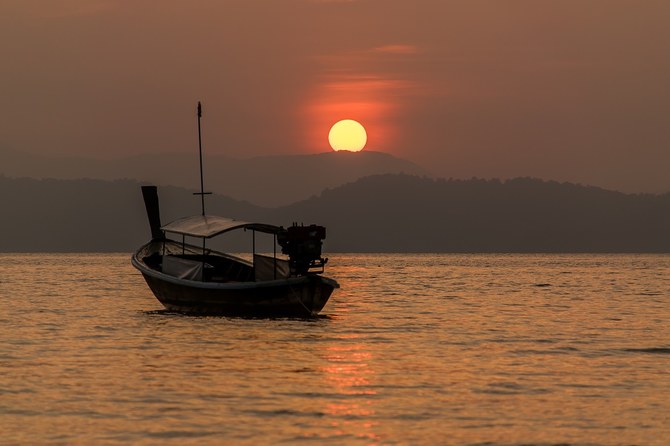“I’m not sure about thiiiiiiii….”
My daughter Anaiya’s voice trails off as the rickety moped disappears down a dirt track, canopied by palms and tropical banyans — her arms tightly wrapped around mum, who is squeezed in behind driver Ming.
My other daughter Amani and I exchange nervous glances. We’re next on the two-wheeled accommodation ‘transfer.’
Mopeds and bicycles are the only way to get around Ko Phayam — no cars are allowed on this pristine island close to Thailand’s aquatic border with Myanmar (Burma) in the Andaman Sea.
The ride is worth it. Ming’s shuttle brings us to a series of quaint wooden huts straight out of a holiday brochure, each emerging from the tropical jungle on stilts overlooking a deserted sandy beach, where shallow azure waters lap at our feet.
Ko Phayam is the island paradise we’d been looking for since leaving the Thai capital of Bangkok two days previously. Our plan had been to drive all the way down to Phuket and the Phi Phi Islands, but our Bangkok host — aptly named ‘Happy’ — set us straight.
“Don’t bother going all the way down to Phuket in search of an island paradise, our country has so many more,” Happy said. “Drive to Ranong, and get a boat across to Ko Phayam, we used to take the kids there when they were young.”
He was right.
We arrived on a tiny speedboat that docked at a small concrete jetty-cum-port, surrounded by brightly colored orange and blue fishing vessels. We stepped onto a clean, green, island seemingly devoid of western tourists.
There were no aggressive touts, litter was scarce, and the population mostly local. Of course there were a few tiny resorts — serving domestic tourism as much as foreign — and ours was one of the most stunning.
As soon as we could, the four of us headed down to the stretch of pristine sand that was effectively our backyard — the beach was that close. The girls sat in pools of crystal-clear water trying to capture the perfect reflection of sun, sea and themselves, whilst my wife and I went for a walk.
We stepped over porous jet-black rocks, where tiny crabs scurried away as soon as our shadows approached. In the distance, at the head of a large wooden pier, sat a brightly colored temple, its golden Buddha shimmering in the late afternoon sun. Guarding its stone gate was a saffron-robed monk puffing on a cigarette. The only other human beings on the beach were a local family collecting shellfish.
The little boy, splashing in the blue shallows, stopped and stared, and his older sister posed for a photo — encouraged by their smiling mother. Every so often a gentle ringing, followed by a chorus of meditative chanting emanated from a nearby monastery, and somewhere in the distance a moped engine backfired.
As we sat down on a large flat rock to absorb this picture of paradise, we had no regrets about heeding Happy’s advice. He was right, this is a country truly blessed with magical Islands.
Alternative Thai islands
Ko Chang
This stunning island manages to combine partying on the beach with awesome wilderness. Expect large crowds of locals during the weekends and national holidays at busier beaches like Lonely Beach, but trekking through Ko Chang’s national park — thick, green and alive with wildlife — it feels as if you’ve truly got away from it all.
Ko Kut
Close to the Cambodian border, this little chunk of paradise floating in the Gulf of Thailand is ideal for snorkeling and kayaking. Life is slow and idyllic in a place where few tourists venture — mainly because it is harder to get to than its larger neighbors — but totally worth it for those that hate crowds and love Instagram-ready vistas.
Ko Samui
Thailand’s second-largest island is an increasingly popular destination, thanks to its practicality and easy access. A mature resort, this will not feel like the remote islands described above, but sandy beaches and morning markets abound in a place where, in the south, there’s even a small Muslim fishing community.

















